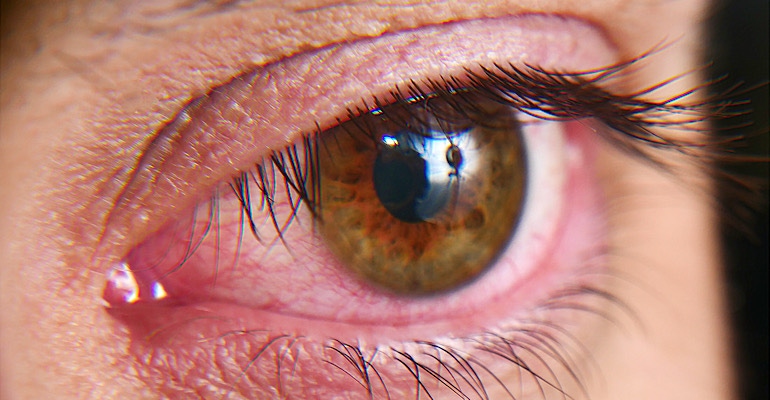J&J’s New Lenses Break the Limit for Traditional Contact Use
The Brunswick, N.J.-based company has won approval from the Japanese Ministry of Health, Labour and Welfare for a contact lens that provides vision correction and Ketotifen, an antihistamine drug to help relieve symptoms for people experiencing itchy allergy eyes.
March 24, 2021

Johnson & Johnson is going beyond the traditional limits of what contact lens can do. The New Brunswick, NJ-based company has developed combination contact lens that provide vision correction and Ketotifen, an antihistamine drug to help relieve symptoms for people experiencing itchy allergy eyes.
The contact lenses would allow users to skip eyedrops.
J&J has received approval from the Japanese Ministry of Health, Labour and Welfare (MHLW) to market Acuvue Theravision lens with Ketotifen. The company is calling the approval a “first.”
"This approval marks another significant milestone in Johnson & Johnson Vision's legacy of rethinking what's possible with contact lenses and bringing forward innovations to help eye care practitioners better meet the needs of their patients around the world," said Xiao-Yu Song, MD, PhD, Global Head of Research & Development, Johnson & Johnson Vision. "Our goal at Johnson & Johnson Vision is to change the trajectory of eye health and we will continue to drive new innovation and technologies that correct, enhance, and restore people's vision over their lifetimes."
Contact Lenses that do the Most
There have been other attempts for contact lenses to go beyond traditional use. Some have been successful, and some haven’t.
In the success column, The MiSight contact lens from San Ramon, CA-based CooperVision won a nod from FDA to correct nearsightedness and slow the progression of myopia in children with healthy eyes.
Verily’s work in the space goes down in the not-so-successful column.
At one point Verily Lifesciences was working with Alcon, then a part of Novartis, to develop glucose-sensing contacts. This collaboration was one of Verily’s first key entry points into healthcare.
However, the project was halted when clinical work on the glucose-sensing lens demonstrated that there was insufficient consistency in our measurements of the correlation between tear glucose and blood glucose concentrations to support the requirements of a medical device.
Verily and Alcon said the goal would instead be to continue working on smart accommodating contact lenses and smart intraocular lenses projects.
The plan to halt the project came right in the middle of Novartis spinning out Alcon into a publicly traded company. The spin-out was completed in April of 2019. Novartis acquired the remaining shares of Alcon for $12.9 billion in 2010.
About the Author(s)
You May Also Like




.png?width=300&auto=webp&quality=80&disable=upscale)